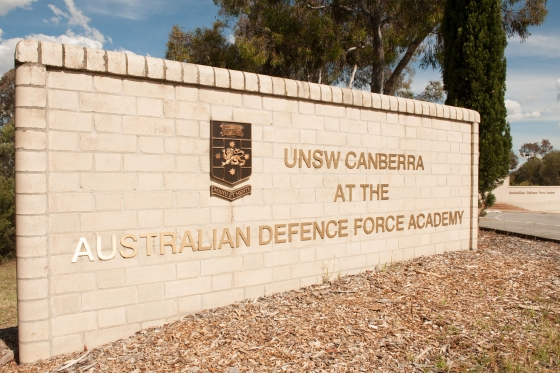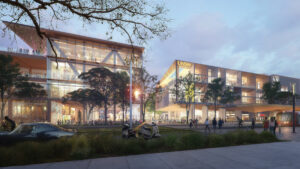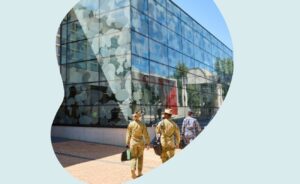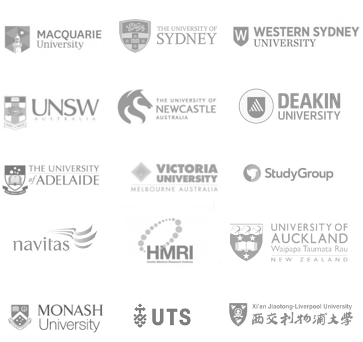
 Lead as one of the new Heads of School at UNSW Canberra,
Lead as one of the new Heads of School at UNSW Canberra,
the official education provider for the Australian Defence Force.
Head of School, Systems & Computing
Head of School, Engineering & Technology
Full time. Fixed term five years with potential for renewal.
About UNSW Canberra at ADFA
 The University of New South Wales (UNSW) is one of Australia’s leading universities ranked in the top 20 universities worldwide.
The University of New South Wales (UNSW) is one of Australia’s leading universities ranked in the top 20 universities worldwide.
UNSW Canberra at the Australian Defence Force Academy (ADFA) is a Faculty of the University of New South Wales, with a unique focus on defence and security.
UNSW Canberra at ADFA houses more than 200 researchers who are recognised for their research excellence and impact. It is renowned for defence-related research, alongside many other research areas such as bushfire prediction modelling, public sector management, and other applied areas to address complex and contemporary challenges across Australia, the region and the globe.
UNSW Canberra at ADFA has been preparing future global leaders since 1967 as the official education provider for the Australian Defence Force.
UNSW Canberra specialises in high-quality undergraduate and postgraduate courses in all areas relating to military, strategic and defence studies, in defence partnerships that are crucial to protecting the security and safety of Australia and its allies.
About the positions
UNSW is seeking Heads for the newly separate Schools of Systems & Computing and Engineering & Technology. Both Heads of School sit within the Faculty leadership team and play a key role in the delivery of the faculty strategy and operational plan, including fostering leadership and excellence, strategic innovation and engagement.
Strengths and opportunities at UNSW for the development of the new Schools include:
UNSW Canberra City Campus
 Due to open in early 2025, UNSW Canberra City Campus will support capability growth in critical technologies and national priority areas such as cyber security and artificial intelligence.
Due to open in early 2025, UNSW Canberra City Campus will support capability growth in critical technologies and national priority areas such as cyber security and artificial intelligence.
The new $1 billion campus will strengthen UNSW’s robust commitment to education, research and innovation in the ACT, building on the strategic partnership that has endured for 55 years in UNSW Canberra at ADFA.
The new, state-of-the-art campus will consist of 14 buildings across eight hectares, and is located in the middle of Canberra’s research and innovation corridor, with other like-minded institutions such as the Defence precinct in Russell and Campbell. It will also become a hub of innovation, with a new Defence and Security Innovation Precinct set to be a key feature of the new campus.
UNSW Canberra Space
 UNSW Canberra Space is a leader in the field of advanced intelligent satellite systems, developing and providing space and artificial intelligence research, technology and education to help meet national and global needs. These needs include secure communications, environmental monitoring, data collection during extreme weather events and bushfires, maritime surveillance and mitigating space congestion risks. Facilities include Australia’s first dedicated space mission concurrent engineering design facility.
UNSW Canberra Space is a leader in the field of advanced intelligent satellite systems, developing and providing space and artificial intelligence research, technology and education to help meet national and global needs. These needs include secure communications, environmental monitoring, data collection during extreme weather events and bushfires, maritime surveillance and mitigating space congestion risks. Facilities include Australia’s first dedicated space mission concurrent engineering design facility.
UNSW Canberra Capability Systems Centre
 The Capability Systems Centre at UNSW Canberra is a world-leading research institute and trusted partner for Government and industry in the critical area of capability management and all aspects related to the capability lifecycle (design, acquisition, sustainment). Collaborators include:
The Capability Systems Centre at UNSW Canberra is a world-leading research institute and trusted partner for Government and industry in the critical area of capability management and all aspects related to the capability lifecycle (design, acquisition, sustainment). Collaborators include:
Defence Science and Technology Group, Joint Capabilities Group (GWEO Enterprise) Future Navy Workforce Branch, Navy and Land Capability Divisions, Capability Acquisition and Sustainment Group (Maritime and Land), Defence Science and Technology Group, and Joint Capabilities Group (GWEO Enterprise).
The Centre does high-quality research in key areas internationally recognised as being innovative and interdisciplinary, including complex systems science, computational modelling and informatics, decision science, and actionable science.
UNSW Institute for Cyber Security
 The UNSW Institute for Cyber Security (IFCYBER) spans both the Canberra and Sydney campuses of UNSW.
The UNSW Institute for Cyber Security (IFCYBER) spans both the Canberra and Sydney campuses of UNSW.
With over 100 members across our faculties, including postdoctorate and higher degree research (HDR) students, the Institute is collectively placing Australia as a leader in multidisciplinary cyber security research, education, innovation, and commercialisation.
To ensure the Institute’s research has real-world impact, work is conducted with partners – Defence, government, industry, and community groups.
Funded projects include development of seL4 microkernel technology – the world’s most advanced cybersecurity technology with support from the United Kingdom’s National Cyber Security Centre (NCSC), and many more.

UNSW AI Institute
The flagship UNSW Research Institute in artificial intelligence, data science and machine learning brings together faculty in Engineering faculty, Computer Science, and Mathematics and Statistics.
Defence Trailblazer
 The Defence Trailblazer for Concept to Sovereign Capability program is a pioneering research translation project, aimed at strengthening collaboration between academia, industry and defence. The program – a partnership between the University of Adelaide, UNSW Sydney, and over 50 industry partners nationally – will co-ordinate cross-sector research and training, to boost Australia’s defence innovation capacity, and produce an estimated economic benefit of $1.5 billion over ten years. A key pillar of the Defence Trailblazer initiative is the Industry Higher Degree Research Program (iHDR), which will create PhD scholarships to support defence-driven research projects.
The Defence Trailblazer for Concept to Sovereign Capability program is a pioneering research translation project, aimed at strengthening collaboration between academia, industry and defence. The program – a partnership between the University of Adelaide, UNSW Sydney, and over 50 industry partners nationally – will co-ordinate cross-sector research and training, to boost Australia’s defence innovation capacity, and produce an estimated economic benefit of $1.5 billion over ten years. A key pillar of the Defence Trailblazer initiative is the Industry Higher Degree Research Program (iHDR), which will create PhD scholarships to support defence-driven research projects.
UNSW Defence Research Institute
The Defence Research Institute at UNSW Canberra (DRI) operates at the frontiers of science and technology to help deliver transformational innovations that advance Australia’s global capabilities, redefine the modern defence landscape and change the world for the better.
The DRI exists to stimulate, unify and support UNSW to do work with and for partners in defence research areas of excellence, such as cyber security, space, systems engineering, artificial intelligence, logistics, hypersonics, defence-related public sector management and conflict studies.
UNSW adds a critical dimension to preparing defence forces across areas as diverse as Autonomous Systems, Hypersonics, Sensors and Space. The UNSW Defence Capability Portfolio showcases UNSW’s excellence in defence research and technology and highlights work across academia, government and industry, as well as with global policymakers
More details of the
Defence research & technology
capability portfolio at UNSW are available here
The right candidates
We are seeking for each appointment an individual who will be able to develop their school and capitalise upon the unique operating environment at UNSW Canberra.
To be considered for this role, the right candidate will bring solid understanding of both undergraduate and postgraduate teaching and education, a vision for advancing research in their School, and a commitment to furthering the intellectual edge of the defence force. With the new city campus to host a Defence and Security Innovation Precinct the best candidates will bring ideas on how to manage excellence at a university that is doing cutting-edge research with real-world impact while embodying a culture of educational excellence that fosters lifelong learning amongst its staff and students.
To learn more, and to apply
UNSW has engaged De Sailly Search to conduct a global search and manage the recruitment process. You are encouraged to register your confidential interest early by contacting Dr Rosalind De Sailly and Jack Andrew-Kabilafkas via email to UNSWCanberraHOS@desailly.com.au
You can download the Position Description here.
Full applications should systematically address the skills and experience for the role (see the dot points listed under “Skills and Experience” in the position description), include a complete and detailed curriculum vitae and contact details of 3-5 nominated referees, and a cover letter in which you indicate your motivation for the role.



